Racism remains a serious problem not only in the United States but also in many other parts of the world . It is a complex problem that has existed for centuries and requires many efforts from countries to solve. Racism, accordingly, is also a focus of the world's human rights conventions.
In an effort to advance human rights goals, the United States signed the International Convention on the Elimination of All Forms of Racial Discrimination (ICERD) in 1966 and formally ratified the convention in 1994.
CERD is designed to protect vulnerable individuals and groups from racial discrimination, whether intentional or the result of seemingly neutral policies. By becoming a party to the convention, the United States is obligated to implement its provisions, including submitting to periodic compliance reviews conducted by the United Nations Committee on the Elimination of Racial Discrimination.
[caption id="attachment_588086" align="alignnone" width="1024"] The United States has adopted many measures in an effort to eliminate all forms of racism in the country. (Photo: Istockphoto)[/caption]
The United States has adopted many measures in an effort to eliminate all forms of racism in the country. (Photo: Istockphoto)[/caption]Enact many laws in many aspects
In 2021, the United States released a periodic report on its anti-racism efforts to the Commission on the Elimination of Racial Discrimination (CERD). The report includes measures the United States has taken to address racism in the country. This report assesses the United States’ efforts since the last report was submitted on June 12, 2013.
Acknowledging contributions from federal government agencies, the 2021 report highlighted actions to address racism in the US.
First, on advancing a Whole-of-Government approach to equity and racial justice, President Biden signed Executive Order 13985, which directs federal agencies to take a comprehensive approach to advancing equity for all people, including people of color and other marginalized groups. He directed the White House to implement this action on his first day in office.
The group targets those who have inadequate access to benefits, are “left out” of society, and are negatively affected by persistent poverty and inequality. The Executive Order states that promoting fairness, civil rights, racial harmony, and equal opportunity is a responsibility of the entire U.S. Government.
Second, on health care, the US passed Executive Order 13995, President Biden established the COVID-19 Health Equity Task Force. This task force supports recommendations to eliminate health and social inequities that cause higher rates of infection, hospitalization, and death from COVID-19 for some groups. At the same time, the task force also aims to prevent such inequities in the future.
The task force has established a subcommittee on the causes of health inequities and xenophobia. The committee will make recommendations to ensure the Federal Government’s response to the COVID-19 pandemic promotes an equitable recovery from the crisis and reduces xenophobia and anti-Asian bias.
During his first week in office, President Biden also signed a Memorandum condemning and opposing racism and discrimination against Asian Americans and Pacific Islanders in the United States. The memorandum acknowledged that during the COVID-19 crisis, political leaders have sometimes fueled racism and xenophobia against Asian Americans, including blaming COVID-19 for originating in Asia.
Such statements have fueled unfounded fears and discrimination against Asian Americans and Pacific Islanders, and contributed to increased rates of bullying, harassment, and hate crimes against these people. The President’s memorandum calls on all federal agencies to take action to prevent harassment and end bigotry against Asian Americans.
In an effort to prevent racial and gender-based violence, since 2015, the Department of Justice has implemented the Community Outreach Program, which provides direct access to federal criminal information databases, allowing racialized communities to submit criminal and history information to prevent perpetrators of domestic violence from purchasing and possessing guns. [caption id="attachment_588087" align="alignnone" width="795"]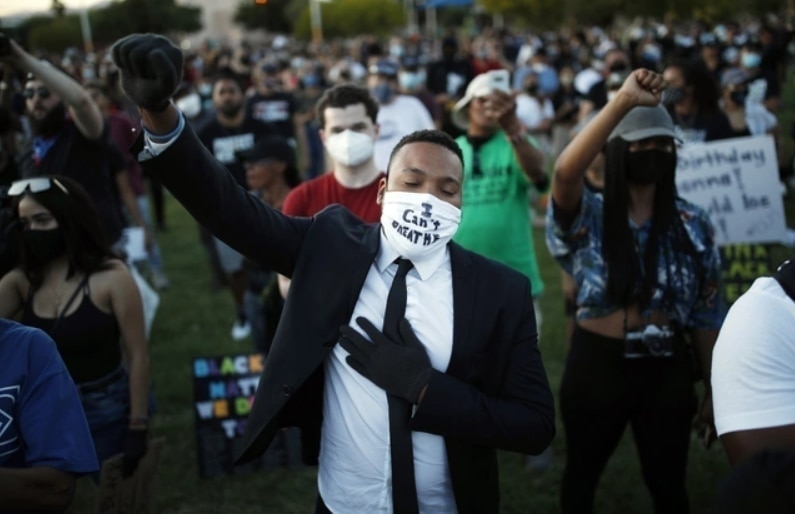 Anti-racism march in the US. (Photo: AP)[/caption]
Anti-racism march in the US. (Photo: AP)[/caption]On immigration, the United States has made a commitment to a fair and orderly immigration system that welcomes immigrants, keeps families together, and allows immigrants to contribute as native-born citizens. The President’s Executive Order 13993 on Amending Civil Immigration Enforcement Policies and Priorities communicates current core values and priorities for immigration enforcement.
In May, President Biden also signed into law the COVID-19 Hate Crimes Act, bipartisan legislation that will accelerate and strengthen the federal government’s response to hate crimes and bias-motivated violence. Additionally, the Department of Homeland Security’s (DHS) Office for Civil Rights and Civil Liberties (CRCL) leads the Equity Task Force to ensure racial equity principles are implemented across policies, programs, and operations.
On Racial Equity and Climate Change, the United States is committed to addressing climate change and helping communities adapt to it, including vulnerable populations and communities of color. The Centers for Disease Control and Prevention (CDC) has developed a framework to ensure climate resilience for vulnerable populations, including identifying high-risk communities and incorporating justice, equity, and diversity into climate adaptation planning.
Agencies, including the Environmental Protection Agency (EPA), the National Oceanic and Atmospheric Administration (NOAA), and the National Aeronautics and Space Administration (NASA), are tasked with collecting data related to the health impacts of climate change on communities of color.
On voting rights, the United States issued Executive Order 14019 to promote voting access, using federal resources to increase access to voter registration services and election information, including for citizens in federal custody; established an interagency steering group on Native American voting rights; and directed the Attorney General to support the reissuance of identification to formerly incarcerated individuals, so they are eligible to participate in elections.
Additionally, during his tenure, President Biden directed the Department of Housing and Urban Development (HUD) to address racist federal housing policies that have fueled generations of wealth inequality.
In education, in 2019, the Fostering College Talent by Unlocking Resources for Education (FUTURE) Act was enacted, providing permanent funding for Historically Black Colleges and Universities (HBCUs), Tribal Colleges and Universities (TCUs), and institutions such as Hispanic-serving institutions, as well as Asian American and Native American Pacific Islander institutions, and other minority institutions. In 2021, the U.S. Department of Education (ED) settled approximately $1.6 billion in debt for 45 individual HBCUs under the HBCU Capital Grants Program.
Flower Dance



![[Photo] Opening of the 14th Conference of the 13th Party Central Committee](https://vphoto.vietnam.vn/thumb/1200x675/vietnam/resource/IMAGE/2025/11/05/1762310995216_a5-bnd-5742-5255-jpg.webp)


![[Photo] Panorama of the Patriotic Emulation Congress of Nhan Dan Newspaper for the period 2025-2030](https://vphoto.vietnam.vn/thumb/1200x675/vietnam/resource/IMAGE/2025/11/04/1762252775462_ndo_br_dhthiduayeuncbaond-6125-jpg.webp)



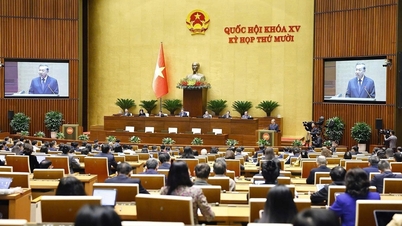







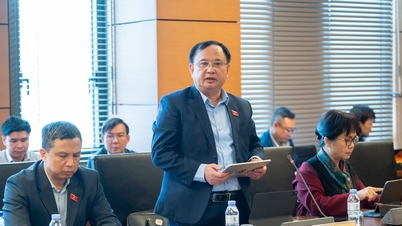













































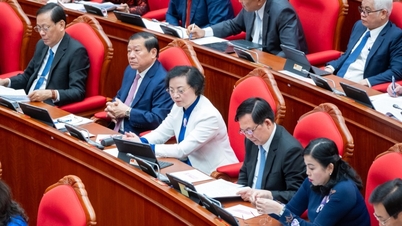


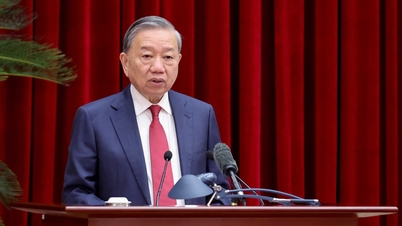







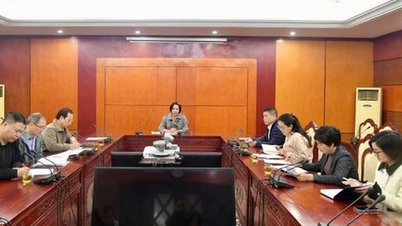

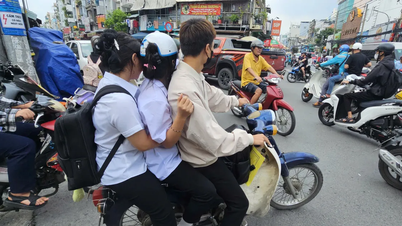
























Comment (0)